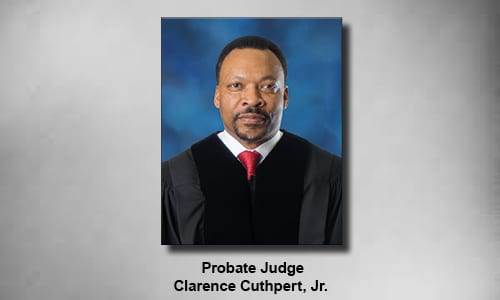
By Rockdale Probate Judge Clarence Cuthpert, Jr.
A Power of Attorney (“POA”) is a document in which one person often referred to as the principal grants authority to another person known as the attorney-in-fact or agent to act on behalf of the principal. The POA can be limited in scope to a specific purpose which would only grant certain authority the attorney-in-fact, or it can be general to allow the attorney-in-fact to handle all of the principal’s affairs. On July 1, 2017, a new Uniform Power of Attorney Act (the “UPOAA”) was enacted pertaining to most Powers of Attorneys (“POAs”) created by individuals in Georgia.
To be valid under the UPOAA, a Georgia POA must be signed by the principal and attested to and signed by one or more witnesses, as well as a notary public. All parties must witness each other’s signature when the POA is signed, witnessed and notarized. A POA executed outside of Georgia must comply with the state law in which it was executed.
The UPOAA made many important changes to existing Georgia POA laws. As a result of the said changes, third parties such as banks and other financial institutions are required to honor or accept a POA. Updating your pre-2017 POA to ensure they are in compliance with the UPOAA may make them easier to use when needed, and third parties will be more likely to honor them. Any third party asked to accept a POA may presume and rely upon the fact that the signatures are genuine, the POA is valid and still in effect, the agent is acting within his authority, and the third party must accept the POA in good faith without actual knowledge that any of these facts are untrue.
Another potential benefit for updating a pre-2017 POA is that doing so may help reduce the risk that the POA could be abused by the agent. That is because the UPOAA makes it possible to hold the attorney-in-fact accountable for misusing POAs to take advantage of the principals who they are supposed to be helping. The mandatory fiduciary duties imposed on the attorney-in-fact by the UPOAA are the duty to act in the principal’s best interests and in good faith, and to only act within the scope of authority granted in the POA.
The information included herein is only intended to provide a basic understanding of a Power Of Attorney. This information is not all-inclusive, and should not be used as or considered to be legal advice.
Throughout each month, the clerk of courts, tax commissioner, sheriff and probate judge—Rockdale’s elected constitutional officers—discuss topics relevant to their respective roles.


![Validate my RSS feed [Valid RSS]](https://web.archive.org/web/20240108205913im_/https://ocgnews.com/wp-content/uploads/2022/07/valid-rss-rogers.png)

